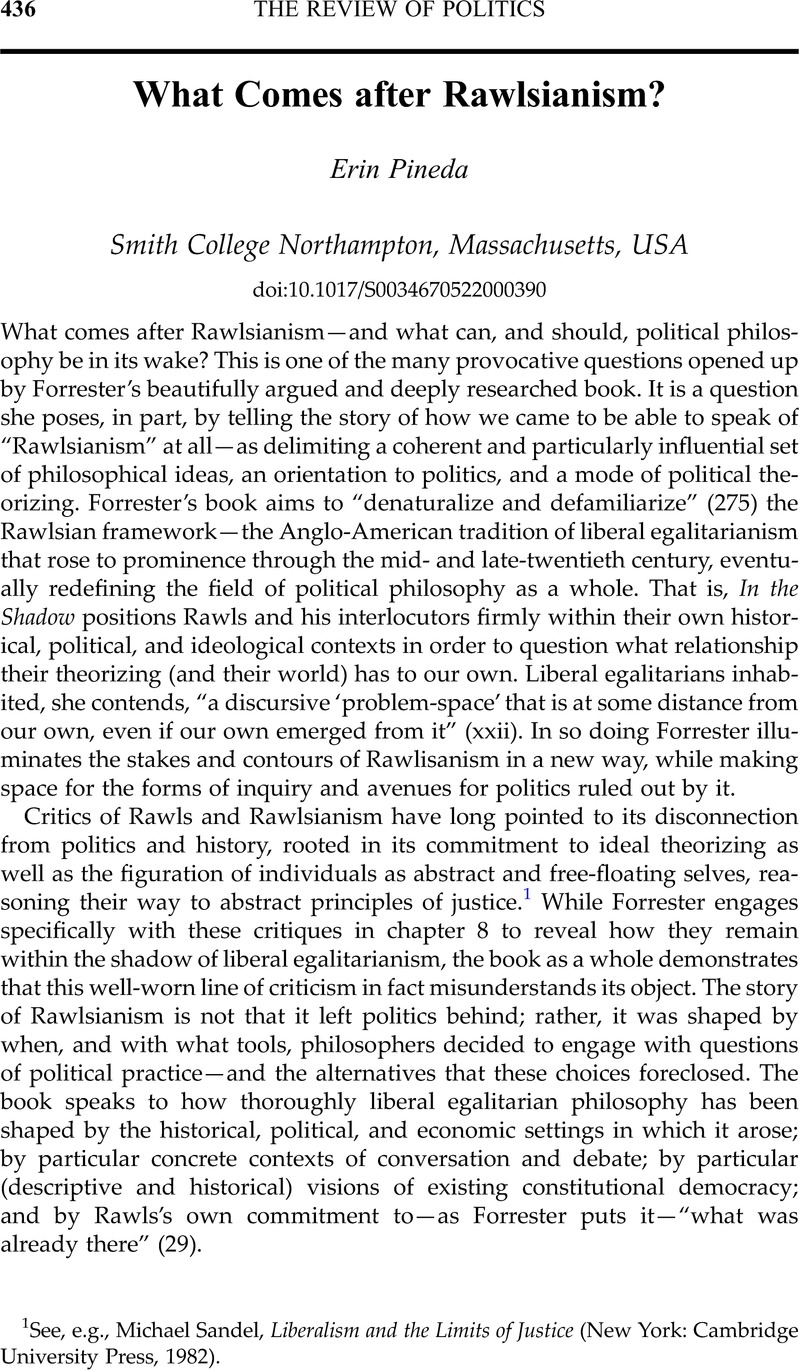No CrossRef data available.
Published online by Cambridge University Press: 18 July 2022

1 See, e.g., Sandel, Michael, Liberalism and the Limits of Justice (New York: Cambridge University Press, 1982)Google Scholar.
2 For example, as Adom Getachew and Karuna Mantena argue, anticolonial political thought posed new “concrete universals” that were both “disclosed in the institutional and cultural fabric of the colonized world” and whose realization “depended on the political practices and agency of the colonized.” Getachew and Mantena, “Anticolonialism and the Decolonization of Political Theory,” Critical Times 4, no. 3 (Dec. 2021): 363.
3 Though Forrester is often very careful in her text to refer to her object in specific terms (“liberal egalitarianism,” not political philosophy as such), there is some slippage between the two, particularly when the question arises as to how to move beyond Rawlsianism. See Sophie Smith, “Historicizing Rawls,” Modern Intellectual History 18, no. 4 (2021): 938.
4 Hanchard, Michael, “Contours of Black Political Thought: An Introduction and Perspective,” Political Theory 38, no. 4 (August 2010): 513CrossRefGoogle Scholar.